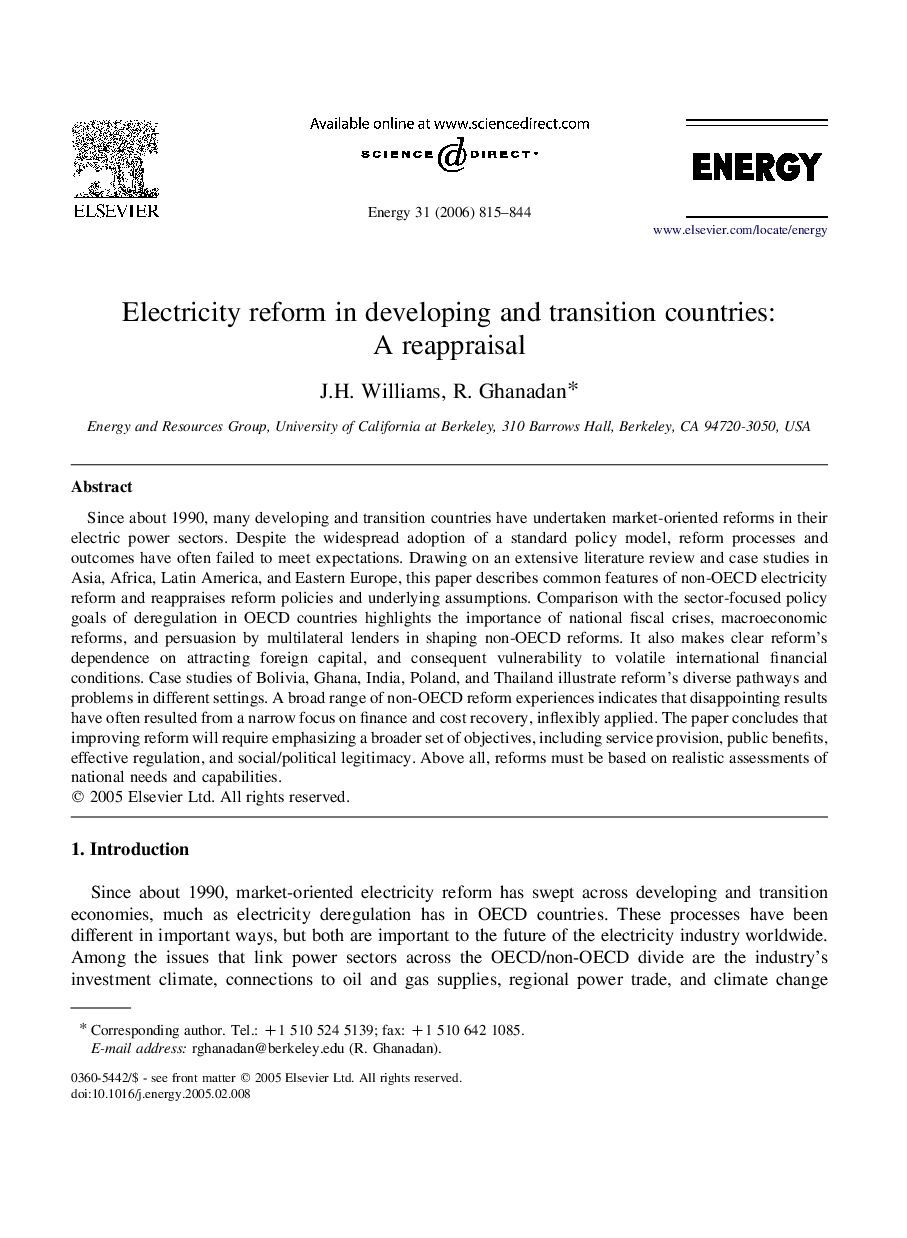| Article ID | Journal | Published Year | Pages | File Type |
|---|---|---|---|---|
| 1736463 | Energy | 2006 | 30 Pages |
Since about 1990, many developing and transition countries have undertaken market-oriented reforms in their electric power sectors. Despite the widespread adoption of a standard policy model, reform processes and outcomes have often failed to meet expectations. Drawing on an extensive literature review and case studies in Asia, Africa, Latin America, and Eastern Europe, this paper describes common features of non-OECD electricity reform and reappraises reform policies and underlying assumptions. Comparison with the sector-focused policy goals of deregulation in OECD countries highlights the importance of national fiscal crises, macroeconomic reforms, and persuasion by multilateral lenders in shaping non-OECD reforms. It also makes clear reform's dependence on attracting foreign capital, and consequent vulnerability to volatile international financial conditions. Case studies of Bolivia, Ghana, India, Poland, and Thailand illustrate reform's diverse pathways and problems in different settings. A broad range of non-OECD reform experiences indicates that disappointing results have often resulted from a narrow focus on finance and cost recovery, inflexibly applied. The paper concludes that improving reform will require emphasizing a broader set of objectives, including service provision, public benefits, effective regulation, and social/political legitimacy. Above all, reforms must be based on realistic assessments of national needs and capabilities.
